
SEARCH CONSOLE LINKING
View your search data inside GA4
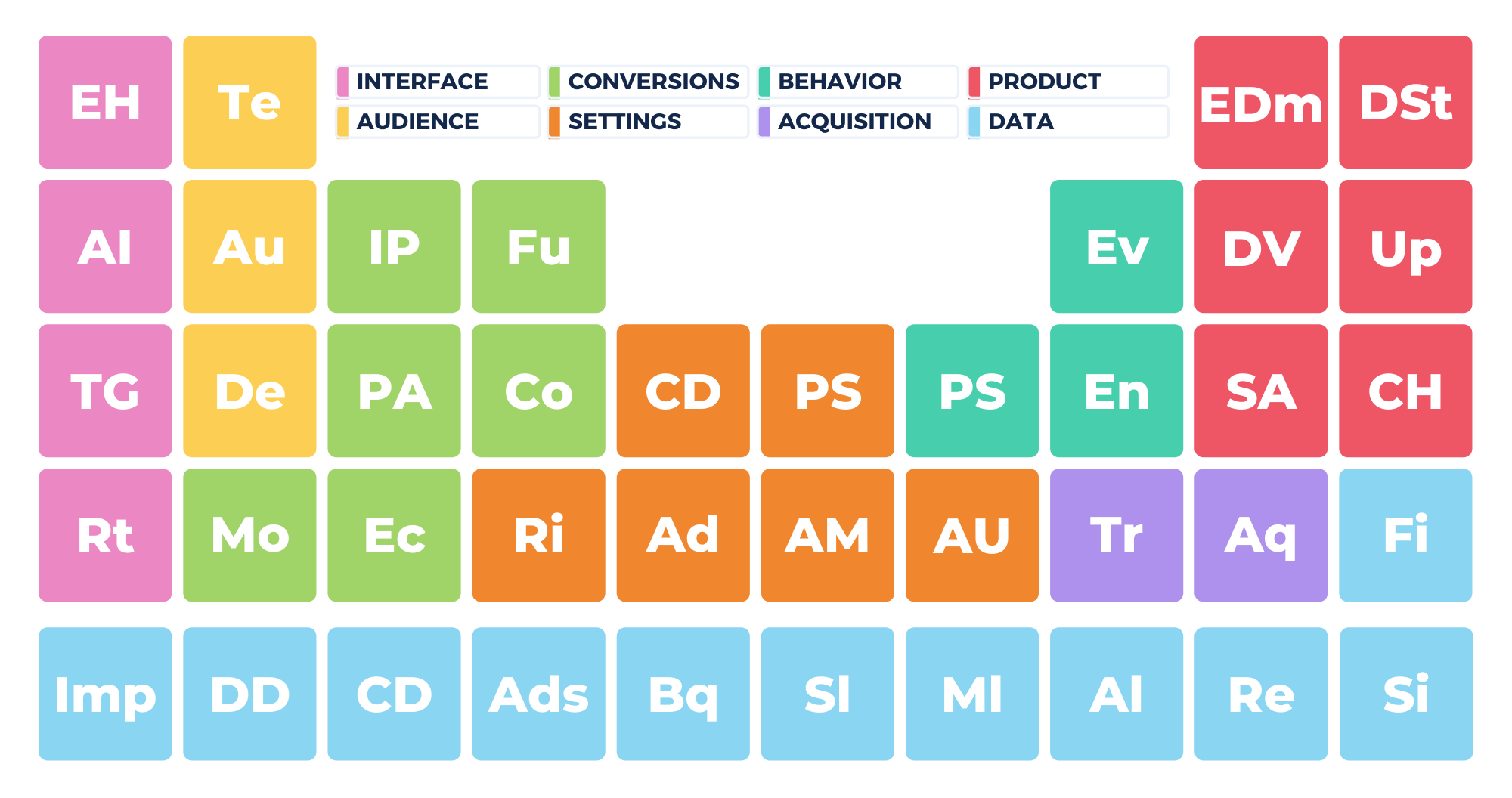
Connecting Google Search Console to Google Analytics 4 is easy. It’s also a smart move from a data collection point of view. The 2 search console reports in GA give you valuable insights on the performance of your website in Google. Ready to roll up your sleeves?
Before following the step-by-step instructions, it may be good to have a look first at the other topics of this article. These will help you decide if the effort is worth your time. (Spoiler alert: it ab-so-lu-te-ly is.)
How to connect Google Search Console to Google Analytics 4?
Before you start, make sure you
- have set up a property for the website in both your GA4 and GSC account.
- are a verified owner in search console with “edit” permissions.
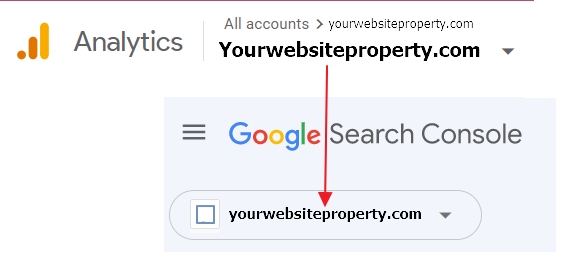
Ready? Open your GA account and follow the 12 steps below.
Step 1: Open admin settings in Google Analytics 4
Make sure you select the right GA account and then click on the clog in the left bottom of your Google Analytics 4 account.

Step 2: Click on Search Console Links
In the Property column of your admin panel, you now scroll down to Product Links.
Here you click on Search Console Links.
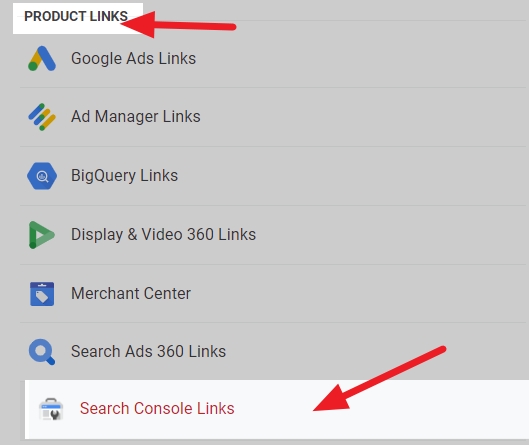
Step 3: Create a Link with Search Console
Click on the blue button Link. This will open a configuration screen with 3 simple steps.
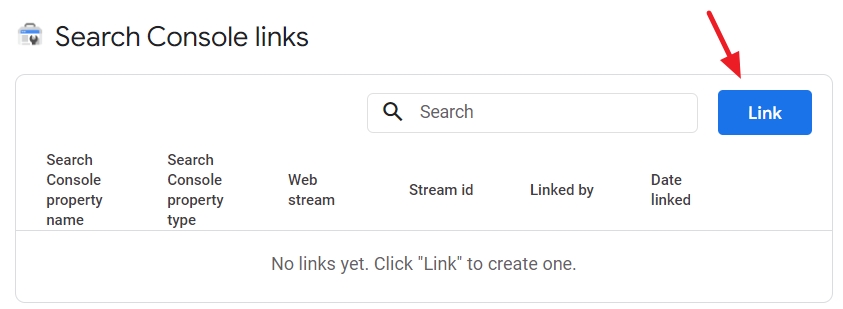
Step 4: Choose your search console property
Click on the Choose accounts button. This will open a list of accounts you can add to Google Analytics accounts.

Needless to say, but doing it anyway. Make sure you pick the right account. And then hit the blue Confirm button in the right top corner.

Now you click on Next.
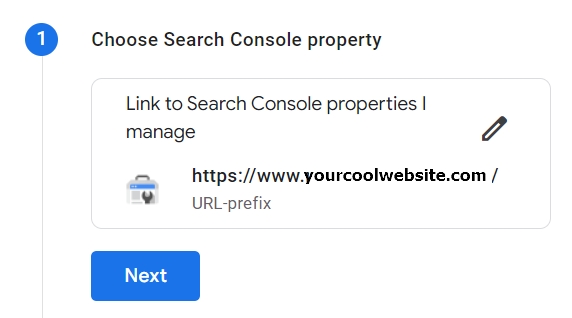
Step 5: Select your web streams
In the next step, you need to click on select.

And then you click on your data stream.

Finally, you click on Next.
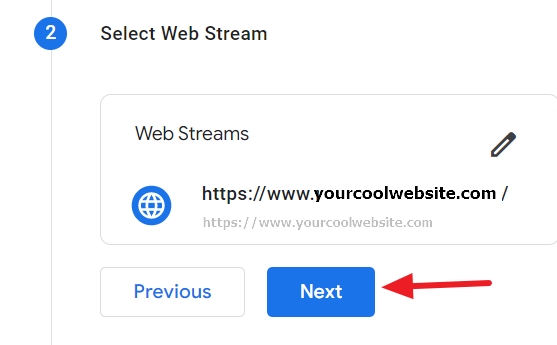
Step 6: Review and submit
You can go back by clicking on Previous. Or you can Confirm the settings to connect your Search Console property to your Google Analytics property.
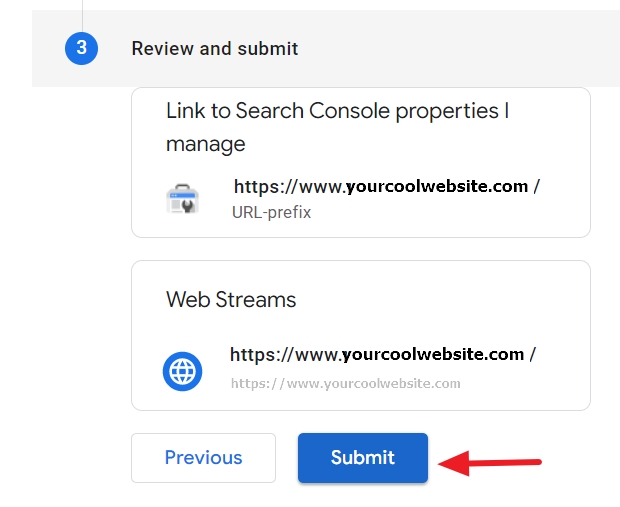
Phew. You made it.
Time for the next steps.
Step 7: Open Report in Google Analytics 4
You can find Reports in the menu on the left.
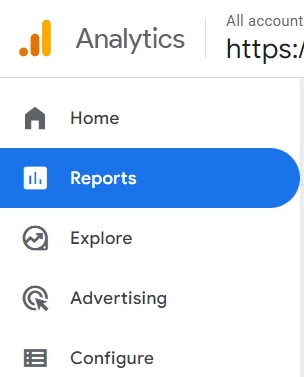
Step 8: Open the reports Library
Scroll down to the bottom of the page and click on Library in the menu on the left.

Step 9: Create a new report
Click on the blue Create new report button.
Then click on Create detailed report.
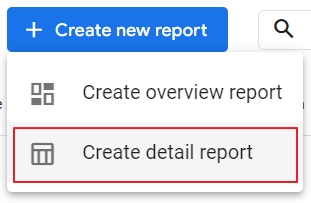
Step 10: Choose your search console template
On the report create page, you can click on one of the two available Search Console templates. They contain a preset of useful data graphs and charts.
Queries:
This report has 3 dimensions:
- Organic google search query
- Country
- Device category
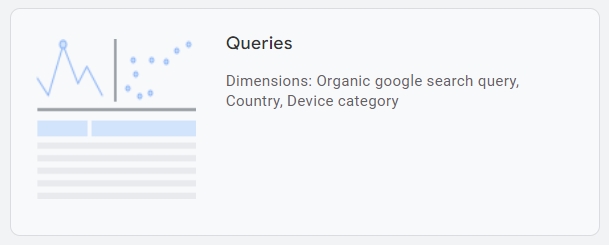
Google organic search traffic
Here, you also have 3 dimensions:
- Landing page
- Country
- Device category
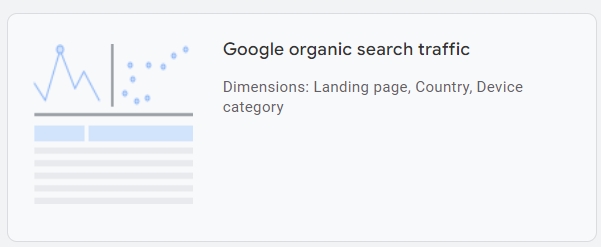
Step 11: Save your search console report
You can further customize your search console reports, but unless you are sure about what you are doing, it’s best to skip this step. Later on, you can get back to customizing your report. I briefly explain this lower down this page.

Repeat steps 3 – 5 to create the other search console report.
Roll down your sleeves. It’s time to dive into your search console reports.
Where can you find Search Console reports in Google Analytics 4?
If you have followed the steps above, you can find your search console data under Reports.
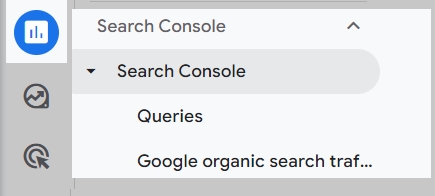
Access search console reports in GA 4
Click on a report to see more details, or customize it.
The Query search report in GA4
The default Query search report focuses on queries. Those are in fact the keywords people type into Google.
The report contains 3 items.
1. Organic google search clicks and Organic google search impressions by Organic google search query: That’s a mouthful for how many times did a keyword appear in Google search and how many clicks did it get. Still a long description, but you get it.
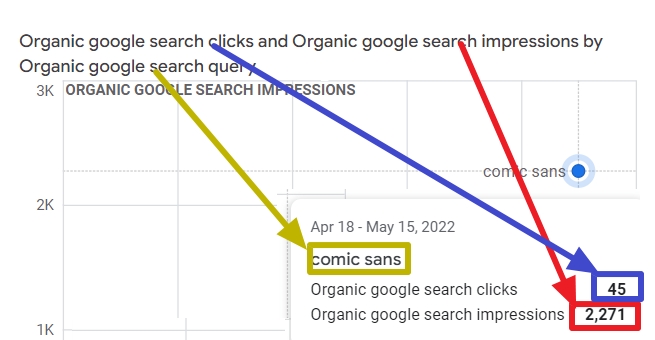
2. Organic google search clicks over time: How many clicks did your website get in Google search?
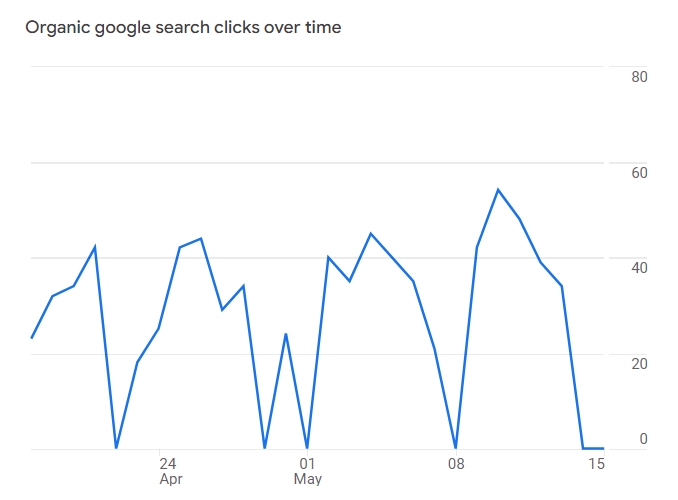
3. Overview of queries: For which keywords is your website ranking in Google?

That’s already a lot of useful information. But you can narrow this down and customize the report to your business needs.
How to customize the Query search console report in GA4?
You can customize search console reports by clicking on the pencil button in the right top corner of a report page.
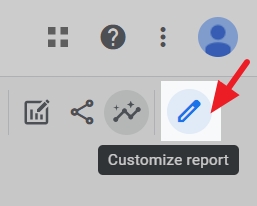
The customization options for the Query report are rather limited.
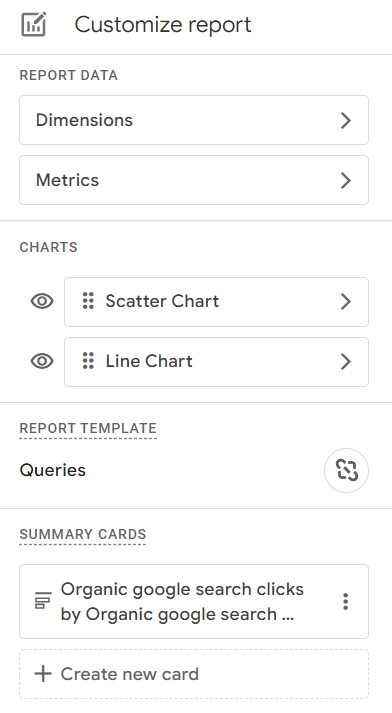
You can, for instance, hide or show items with the eye icon. Or rearrange the order of items with 6 bullets. Drag them to change the order.
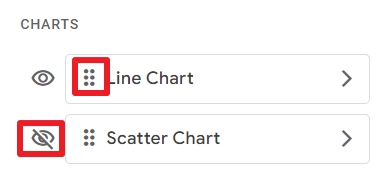
SUMMARY CARDS in GA4 contain power.
You can easily create one by clicking on Create new card
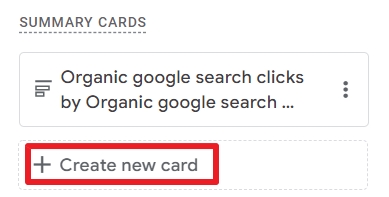
In the next screen, you can create a card and see the data loaded as you change the dimension, metrics and visualization type.
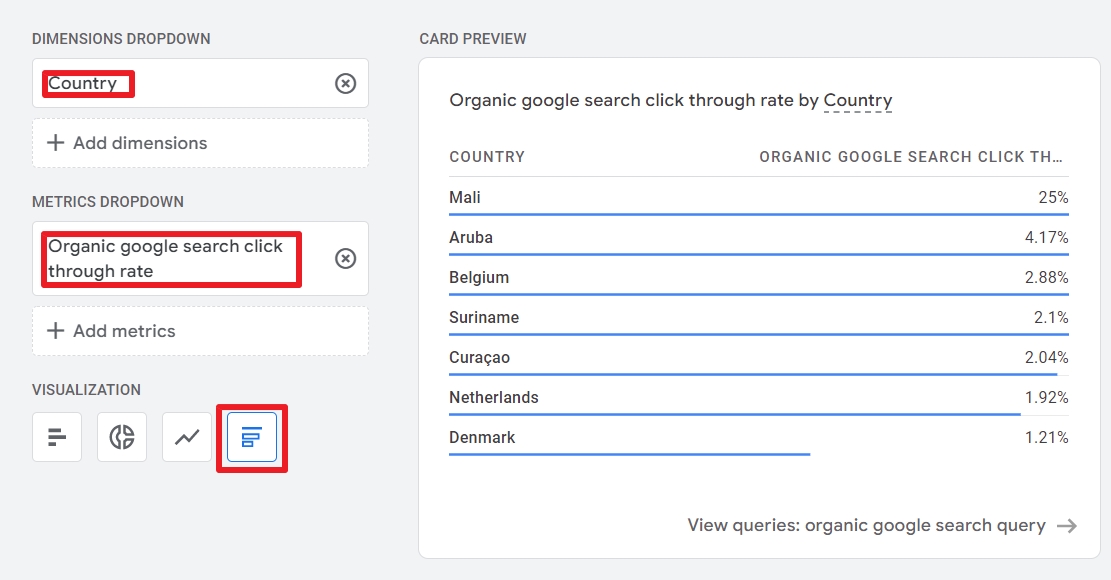
You can save your changes to the current report, or create a new one.
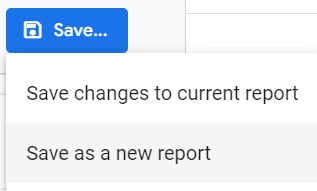
Let’s look at what the second search console report reveals.
The Google Organic search traffic report in GA4
This report has by default also 3 separate items. The focus is now on Landing pages, instead of queries.
- Organic google search clicks over time: this is exactly the same as in the query report, so I will leave it to that.
- Organic google search clicks and Organic google search impressions by Landing page: which landing page got clicks in Google and how many times did it appear in Google search?
- Landing page: how many visitors did every web page get after a search in Google?
How to adapt the Google Organic search traffic report in GA4?
This is similar to adapting the Query report, as described above.
- Open the report
- Click on the pencil
- Hide/show elements
- Or rearrange the order of metrics and dimensions
- Change the visualization of the charts
Compared to the Query report, you can use a lot more dimensions.
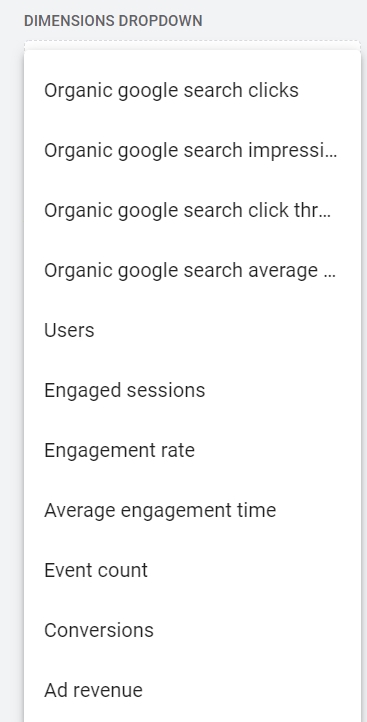
This allows you to, for example, create a card that shows the average engagement time per country for visitors who found you in Google.
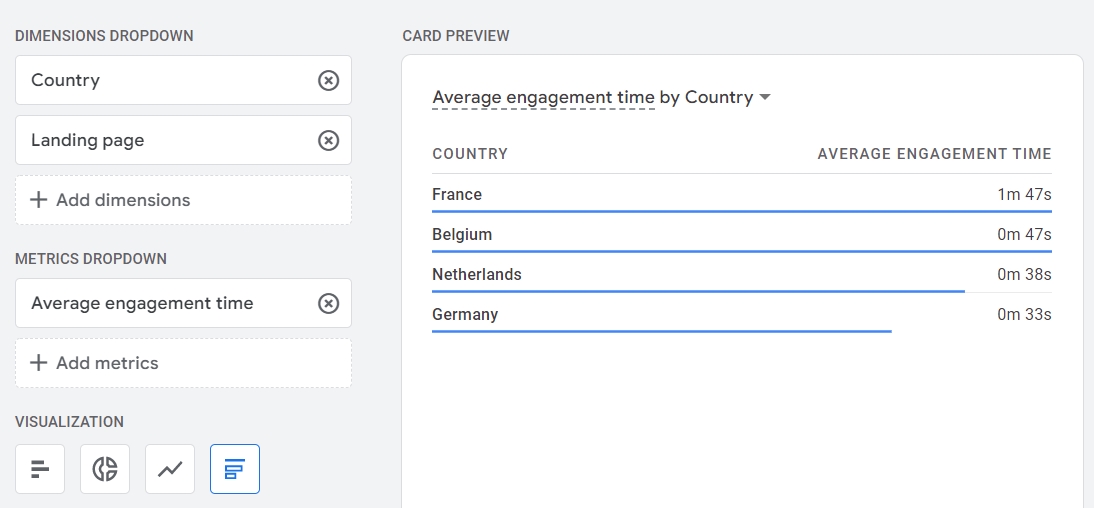
Convinced of the power of connecting Google Analytics and Google Search?
If not, here are 2 more advantages of connecting both accounts.
2 bonus advantages of connecting Google Search Console to GA4
Connecting GSC and GA is easy with the steps described above. But we can hardly call that a good reason to do it. (Parachute jumping is easy too, but you won’t catch me doing that)
Bonus advantage 1: limit access to Google Search Console functionalities
Google Search Console differs from Google Analytics 4. Connecting them will not give you, or the users you added to GA4, access to everything of search console.
That’s a huge plus, because GSC has some functionalities that can completely remove a website from Google search.
There are 2 safer alternatives to give your team access to search console data.
- Export search console data: you can export data to excel and send it over by email.
- Search console data in GA4: as you figured out, this is in fact what this article is about.
Bonus advantage 2: one tool, different data sources
The amount of tabs open in your browser can be overwhelming. Unless you have reserved time in your agenda, you will most likely forget to regularly check all your analytics tools.
Google Search Console is a tool you absolutely need at the beginning of a website project… and then forget.
Or is it?
According to John Mueller of Google, you still need to login regularly in your search console. Otherwise, Google may stop collecting data for it.
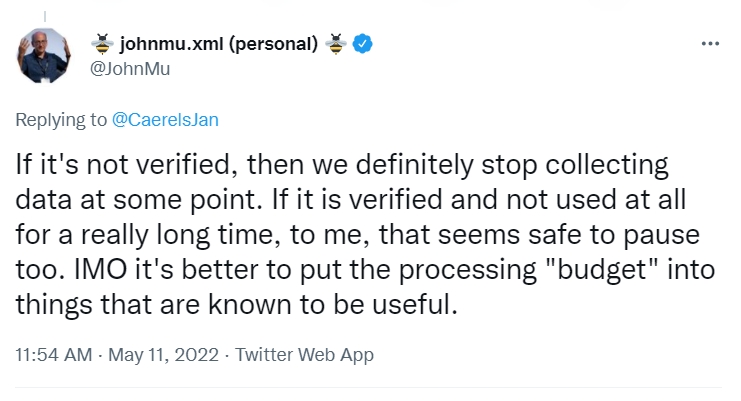
Time to wrap it up.
Conclusion: Connecting GSC and GA 4 is a smart thing to do
Connecting Google Search Console and Google Analytics 4 is a one-time process.
Once the link between the two free Google tools is set up, you have access to two search console reports in your GA 4 account.
The Query report gives you information about keywords your site is ranking for. It also shows you how many people clicked on your website in Google search.
The Google Organic Search Traffic report shows details about your landing pages in Google.
You can customize the reports to your needs and add summary cards to monitor SEO metrics that matter most to your business.
Despite the power of connection, don’t ignore the data in Google Search Console. Google may stop tracking it and on top of this, it contains valuable insights in other metrics that have an influence on your Google ranking.
What’s next? Keep this tab open and follow the steps to connect your accounts. I promise you won’t regret it for a second.
